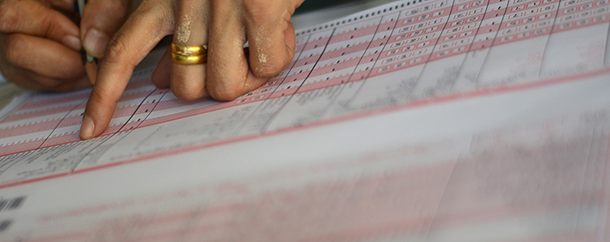RANGOON — Arakanese members of Parliament said they have complained to the Minister of Immigration and Population Khin Ye over the fact that the upcoming nationwide census will allow stateless Rohingya to register their ethnic identity as they wish, in accordance with international standards.
Four MPs of the Rakhine National Development Party (RNDP) told The Irrawaddy that they met with Khin Ye on Tuesday to express their anger over the classification option offered to the Muslim population in northern Arakan State.
“We told him at the meeting that there will be a problem when using the Rohingya name in the census list,” said MP Pe Than. “But he told us that according to international standards for a census, his government does not have the right to change it. If he did, there will be a problem with the international community.”
The census will start at the end of March and requires respondents to select their ethnicity and religion. They can choose an ethnicity from a classification list of 135 minorities drawn up in the 1982 Citizenship Law by the then-military government.
The law omitted the Rohingya from the list and set them apart as a group without citizenship called “Bengalis,” to suggest most are illegal immigrants from neighboring Bangladesh. Rohingya Muslims claim nonetheless that they have lived in northern Arakan State for generations.
The UN Population Fund (UNFPA), which is assisting the Burmese government with the census, has said that respondents who do not identify with one of the 135 ethnicities can describe themselves as “other” and orally report their desired ethnic affiliations to the enumerator. These responses would later be sub-coded during data processing. This option would allow Rohingya to register their ethnic identity as they wish.
RNDP MPs said they were puzzled by the international standards for collecting census data as these seemed to contradict the government position that there is no Rohingya group in Burma.
“The government is officially saying there are no Rohingya, so how can there be a name of Rohingya on the census list?” Pe Than said, adding that the minister replied that census classification and official government policy “are two different issues—this problem will be solved later.”
Pe Than said Arakanese nationalist leaders threatened to hold protests against the census operations if the classification of Rohingya is allowed, adding, “We don’t have a problem with the [census classification] name Bengali.
[But] our party and our people will not be satisfied with this and for us, this will be a historic mistake for our country.”
Burma’s first nationwide census is due to get underway soon, but has caused controversy among different ethnic groups as many feel that the ethnic classifications drawn up by the government and the UNFPA are inaccurate.
International observers, such as the International Crisis Group, have warned that the inclusion of questions on sensitive issues of ethnicity and religion risk inflaming ethnic armed conflict and lingering tensions between Buddhists and Muslims, in particular in Arakan State.
Government data from 2010 put Arakan State’s population at about 3.34 million people, of which the Muslim population accounts for 29 percent.
In recent years, the Burmese government has made several attempts to survey the Muslim population in Arakan State, but Muslims have refused to cooperate because the option to identify as Rohingya was not offered.
Muslims in Arakan State and international human rights advocates have repeatedly requested that Burma recognize the Rohingya, but the government has continued to adhere to the 1982 Citizenship Law.
Many local Arakanese Buddhists worry that government recognition of the Rohingya population would precede an eventual shift in demographics in Arakan State, and with that a loss of political power and cultural identity.
There is also a deep rooted fear that the 150-million strong Muslim population of neighboring Bangladesh is eager to settle in the sparsely populated state.
During two outbreaks of inter-communal violence in 2012, nearly 200 people were killed and about 140,000 displaced, most of them Muslims. Most of the displaced continue to reside in squalid, crowded camps.
In the aftermath of the 2012 violence, President Thein Sein said Burma would not accept Rohingya as citizens and has asked the United Nations to help to resettle them in any other country willing to take them in.
In recent months, nationalist Arakanese have held recurrent protests against the presence of Médicins Sans Frontières Holland, who they accused of favoring the Rohingya. Last week, the government suspended work of the medical aid group in the state, ending its vital support for both Rohingya and Arakanese in need.

















